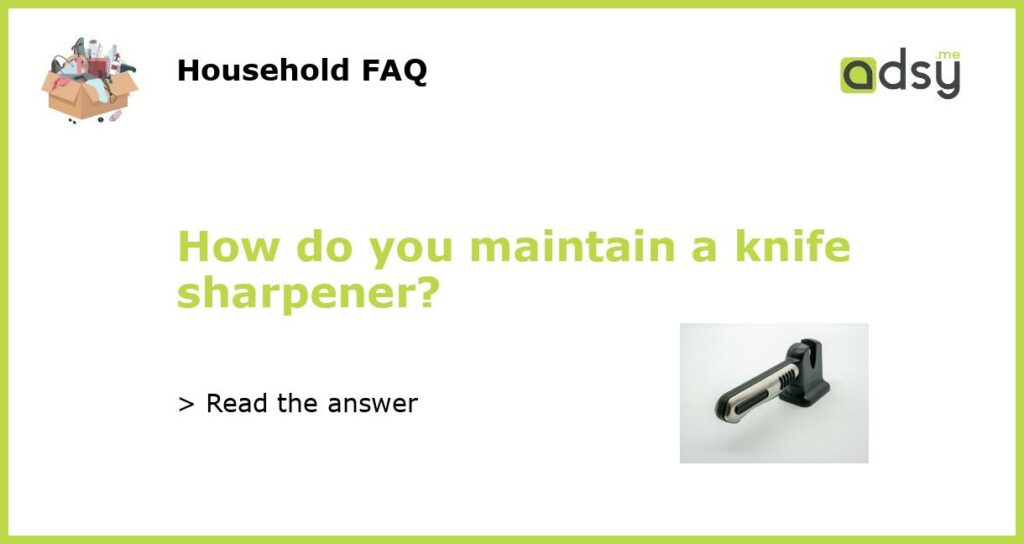Understanding Knife Sharpeners
Before we dive into maintaining your knife sharpener, it’s important to understand the type of sharpener you have. There are various types of sharpeners, such as electric sharpeners, stones, and manual sharpeners. Each has its own set of pros and cons, and understanding them will help you maintain them better. For instance, electric sharpeners may require more care when it comes to cleaning their blades, while stones may require regular flattening to ensure they work optimally.
Cleaning Your Knife Sharpener
One of the most important aspects of maintaining any sharpener is to keep it clean. Particularly with electric sharpeners, you’ll want to pay attention to the blades. Make sure to unplug the sharpener and disassemble it to access the blades safely. Gently clean them with a soft, damp cloth and let them dry completely before reassembling the sharpener. You can also use a small brush, such as a toothbrush, to get into small, tight spaces.
Regular Sharpening
It’s worth sharpening your knives regularly, as opposed to waiting until they’ve gone blunt. This not only makes life easier for you, as a knife user, but also ensures your sharpener is working properly. Depending on the type of sharpener you have, this regular maintenance may look different. For instance, if you have a stone sharpener, make sure to flatten the stone if you notice any unevenness. If you have an electric sharpener, check the blades every few uses to see if they need cleaning or replacing.
Storing Your Sharpener Correctly
Storing your sharpener appropriately is key to maintaining it. Avoid storing it in a damp or humid place, as this will encourage rusting that can damage your sharpener over time. You should also keep it away from any heat sources, as this can cause the metal or plastic to warp, which can affect the sharpener’s function. It’s also worth storing the sharpener away from any other kitchen tools that could damage it, such as heavy pots or sharp knives.
Replacing Your Sharpener When Needed
Lastly, it’s important to recognize when your sharpener is no longer performing well and needs replacing. Although you may be able to maintain your sharpener for years, sharpener blades and stones eventually become ineffective, and the machine can be more prone to breaking. If you notice you need to sharpen your knives more frequently, or the sharpener isn’t sharpening your knives as effectively, it’s worth investing in a new one. Sharp knives are important for both your kitchen tasks and safety, so don’t waste time with an ineffective sharpener.






